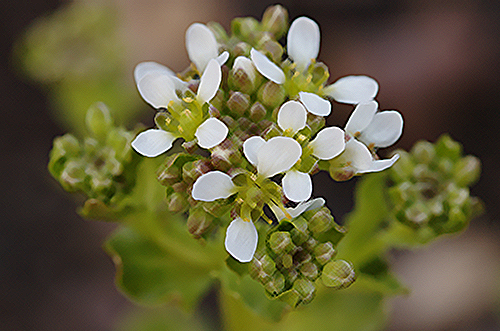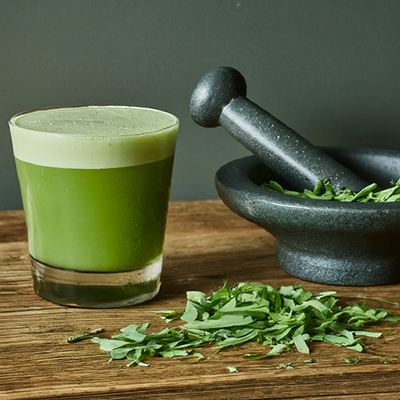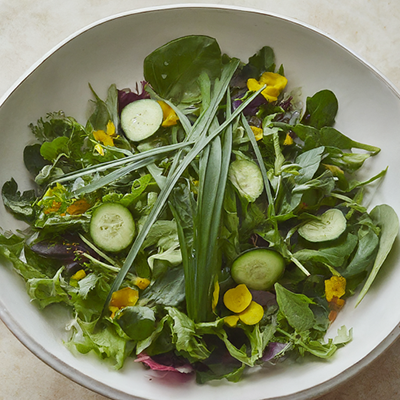Contents
Scurvy grass was unknown to early botanists like Dioscorides in the 1st century or his Renaissance commentators. Being native to the Atlantic coast, it was ignored by all great herbalists and physicians of the Latin areas of Europe. However, in the 17th and 18th centuries, the scurvy grass was extensively cultivated in France and Great Britain to help sailors and explorers returning from their journeys suffering from ailments caused by the unknown lack of vitamin C.
Though scurvy is not as common as it used to be, scurvy grass is still used because of its medicinal properties and fine flavor.

Scurvy Grass Scientific Facts
- Scientific Name – Cochlearia officinalis L.
- Other Names – Scrubby grass, spoonwort.
- French – Cochléarie.
- Spanish – Coclearia.
- Environment – The plant grows in rocky, humid soils near coastlines or water streams. It is seldom found in Central and Northern Europe and North America.
- Description—This is a vibrant plant of the Cruciferae family. It grows from 10 to 25 cm high, with fleshy, heart-shaped, dark-green leaves growing in a long petiole and white or pink flowers growing in terminal clusters.
- Parts of the plant used medicinally – The whole fresh plant.
Scurvy Grass Benefits
All aerial parts of the plant contain a sulfured glycoside (glycoclearine) and an enzyme called myrosine, which transforms the glycoside into butylisosulphocyaninde, a substance similar to the mustard essence, which gives the plant a flavor similar to that of mustard or watercress. Moreover, it contains vitamin C, tannin, and mineral salts. Its properties are as follows:

- Antiscorbutic—Due to its vitamin C content and ability to stimulate metabolism, it is recommended for weakened people and those lacking fruit and vegetables.
- Appetizer and digestive—Scurvy grass stimulates the secretion of gastric juices and the activity of the digestive system. Thus, it is recommended for people suffering from lack of appetite, gastric atony (sensation of being bloated after meals), and, as a rule, for those who suffer from a bloated stomach and slow digestion.
- Diuretic and depurative – It promotes the elimination of acid waste substances such as urea and uric acid. It is helpful for some people who suffer from rheumatism, arthritis, and gout and those who follow a diet based on meat products.
- Rubefacient—When externally applied, like mustard, this plant attracts blood towards the skin, thus reducing the congestion of internal organs. It is used to compress the affected area (for instance, inflamed joints).
How to use Scurvy Grass

- As a vegetable, the fresh stems and leaves of scurvy grass can be eaten in salads or mixed with other vegetables.
- Juice – Mixed with orange juice, Pure juice is an excellent refreshing drink against asthenia. It must be drunk immediately after being made so that its vitamins are not corrupted. Drink a glass in the morning every day.
- Compresses are soaked in an infusion of scurvy grass, prepared with 50 grams of plant per liter of water, and then applied to the painful areas.
Ancient sailors had a diet based on fish, meat, and flour, which lacked vitamin C. In the past, scurvy grass, which contains a high amount of vitamins, as mentioned above, saved the lives of many sailors who suffered from scurvy. It is currently used because of its digestive and refreshing properties.
DISCLAIMER: All content on this website is presented solely for educational and informational objectives. Do not rely on the information provided as a replacement for advice, diagnosis, or treatment from a qualified medical expert. If you are pregnant, nursing, or have any preexisting medical concerns, talk to your doctor before using any herbal or natural medicines.
REFERENCES
- George D. Pamplona-Roger, M.D. “Encyclopedia of Medicinal Plants.” George D. Pamplona-Roger, M.D. Encyclopedia of Medicinal Plants. Ed. Francesc X. Gelabert. Vols. 1 San Fernando de Henares: Editorial Safeliz, 2000. 356, 357. Print.
- https://www.webmd.com/vitamins/ai/ingredientmono-373/scurvy-grass
- http://www.wildflowerweb.co.uk/plant/4065/pyrenean-scurvygrass
- https://www.rxlist.com/supplements/scurvy_grass.htm
